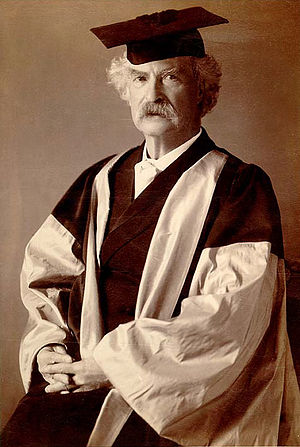Doctor of Letters
Lua error in package.lua at line 80: module 'strict' not found.

Doctor of Letters (Latin: Litterarum doctor; D.Litt.; Litt.D.; D. Lit.; or Lit. D.) is an academic degree, a higher doctorate which, in some countries, may be considered to be beyond the Ph.D. and equal to the Doctor of Science (Sc.D. or D.Sc.). It is awarded in many countries by universities and learned bodies in recognition of achievement in the humanities, original contribution to the creative arts or scholarship and other merits. When awarded without an application by the conferee, it is awarded as an honorary degree.
Britain and the Commonwealth
In the United Kingdom, Australia, India and certain other countries, the degree is a higher doctorate, above the Doctor of Philosophy (Ph.D.) or Doctor of Education (Ed.D), for example, and is issued on the basis of high achievement in the respective field or a long record of research and publication. The Litt.D. degree is awarded to candidates whose record of published work and research shows conspicuous ability and originality and constitutes a distinguished and sustained achievement. University committee and board approval is required, and candidates must provide documented mastery of a particular area or field. The degree may also be awarded honoris causa to such individuals as the university or the learned body in question deems worthy of this highest academic award.
At the University of Oxford, the degree was established in 1900 as part of the development of graduate-level research degrees that began with the introduction of the B.Litt. and B.Sc. degrees in 1895. Up until that point, Oxford had focused on undergraduate teaching, with the doctorates, such as those in divinity (D.D.) and medicine (D.M.) tradionally reserved for established scholars. The German paradigm, adopted by the Americans, that created a demand for the philosophiae doctor (Ph.D.) degree as a basic qualification for an academic career was not immediately adopted at Oxford, but it did create pressure for Oxford to offer a degree for this purpose.[1] Rather than use the D.Litt. degree, Oxford eventually created its doctor of philosophy (D.Phil.) degree in 1915, deliberately using a distinctive English, rather than a Latin, title and abbreviation for it. The D.Phil. became an accelerated, supervised, lower-status degree to the D.Litt. When it was established in 1900, the Oxford doctor of letters (D.Litt.), degree could be awarded to individuals who had a standing of thirty-four terms from the award of a B.Litt. degree, or of thirty-nine terms (thirteen academic years) from the award of an Oxford master of arts M.A. degree, providing they could provide "fitness for the degree in published books or papers, containing an original contribution to the advancement of learning."[2] The length of the required number of terms changed over the years, depending on the prior Oxford degree that a candidate held, and the requirements became more specific. By 2015, The Oxford University Examination Regulations called for a faculty board at Oxford to "appoint judges to consider the evidence submitted by any candidate, and to report thereon to the board. In making their report the judges shall state whether the evidence submitted constitutes an original contribution to the advancement of knowledge of such substance and distinction as to give the candidate an authoritative status in some branch or branches of learning."[3]
United States
In the United States, the degree is often an honorary degree conferred on those who have contributed to the humanities or society. There is, however, at least one earned D.Litt. programme at Drew University, where the degree requires 36 graduate credit hours post-Master's and a successfully prepared and defended nine-credit doctoral dissertation (for a total degree requirement of 45 hours) .[4]
France
In France the doctorat is awarded with a speciality, but there is no official list of these. Candidates for a doctorat in literature are awarded a Doctorat ès lettres. There is a higher degree, the habilitation à diriger des recherches, which is obtained following different rules in each field. In literature, the candidates must also present a new and unpublished work. The habilitation (which is not followed by an indication of the field) allows to apply for a position of professor in French universities.
References
- ↑ M.G. Brock and M.C Curthouys, eds., The History of the University of Oxford., vol. VII, part 2: Nineteenth Century Oxford, (Oxford: Oxford University Press, 2000), p. 619.
- ↑ Brian Harrison, ed., The History of the University of Oxford, vol. VIII: The Twentieth Century (Oxford: Oxford University Press, 1994), p. 125.
- ↑ [University of Oxford. Examination Regulations. | https://www.admin.ox.ac.uk/examregs/2015-16/doladoctofscie/]
- ↑ "Arts & Letters Academic Program", Drew University